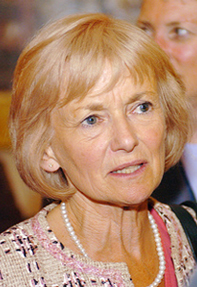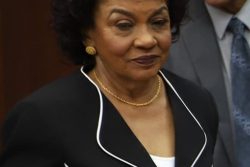In a matter of months there will be a general election in the United Kingdom. Whether it will take place in May as the media have been forecasting, or in early March as many inside UK politics believe, remains to be seen. In either case the choice of date is in the hands of the British Prime Minister who will undoubtedly balance his slim chances of winning against the likely negative public perception arising out of an April budget; one in which increased taxation and cuts to public expenditure seem unavoidable.

From a Caribbean perspective this is an election of some significance, as it may well mark the start of the last chapter of any special relationship with the region, whichever party or parties makes up the next government. For some years now, Britain’s relations with the Caribbean have been perceived to be in decline, or as London might have it, have been undergoing change. The reasons for this are various.
In part it is because the UK has chosen to target its foreign policy more closely. This meant that at the end of the Cold War it sought a changed role in the world, placing greater emphasis on its own strategic concerns. For regions such as the Caribbean, which was at a relatively high level of development (as measured by GDP), this approach emphasised multilateral rather than bilateral support; de-emphasised geography; sought a more focused approach towards trade and investment; and promoted ties based on cross-cutting themes such as the environment and growth.
This meant that after a period of redefinition, Britain made clear that the relationship with the Caribbean, while warm, was now qualified. For instance, it supported only an orderly transition out of preference, placing a new value on relations with Hispanic partners in the region, and deepening bilateral relations with certain Caricom nations, largely for reasons related to security.
For its part during this period of change, the Caribbean has seemed uncertain about what in practical terms it required from Britain and how this might best be achieved. Moreover, it did not always deploy its arguments well. A good example of this was the UK Caribbean Forum which took place every two years. At these events, British ministers wanted a frank and freewheeling exchange, but for the most part Caribbean ministers, bound by collective responsibility, have made or read Caricom presentations that have resulted in formal and sometimes stilted exchanges, little improving mutual understanding.
At the same time the number of individuals in British politics that understand or have a real interest in the Caribbean has diminished dramatically. This in part originated in the rise of the professional politician who saw the main chance for a political career coming through domestic politics rather than foreign relations, but it also reflected the now rapid turnover in ministers and officials who increasingly have to combine the Caribbean with wider geographical responsibilities.
The consequence is that Britain’s government has steadily been losing its collective memory about the Caribbean, and where the special relationship has come from and why. This is of course not to lessen the role played by important friends of the Caribbean like Baroness Kinnock, the present Minister responsible for relations with the Caribbean at the Foreign and Commonwealth Office, or Gareth Thomas, the Minister at the Department for International Development, both of whom continue to support the region and its interests.
Rather, it is to argue that if the Caribbean wants to retain a close relationship with the United Kingdom it needs to analyse not only the ways in which Britain’s world view has changed, but to look also at the likely challenges that any future UK government will face, and then decide what it needs from a future relationship and the best ways to engage to achieve a positive outcome and develop new friends.
Looking ahead, it is now all but certain that within a matter of months after a UK general election Britain will have to launch a defence review, which in outcome is likely to be closely connected to consideration being given to a changed foreign and development policy. At the heart of this debate will be a recognition that financially the UK can no longer afford to maintain its present world posture and will have to educate the way its population thinks about their place in the world.
The outcome will, for instance, lead inexorably to issues such as the location of Britain’s overseas representation, its relative interest in different regions of the world and how in time a change in emphasis will be presented.
As a consequence this is the time when the Caribbean – or more probably individual nations – needs to decide what it wants from the UK and how best to manage a future relationship. At one level this might involve an early and more focused dialogue with all three main political parties, and at another, giving consideration as to how best to support or resource its diaspora to have its voice heard on behalf of the region.
So far Britain’s Caribbean community has played little part in the UK’s foreign policy agenda. However, in recent times this has begun to change as groups have begun to lobby against the increase in Air Passenger Duty; governments in the Caribbean (especially Jamaica and Barbados) have started to recognise the value of mobilising their ‘sleeping army’ in Britain; and Caribbean companies which have invested in UK manufacturing, the media and financial services have been prepared to fund events that create greater diaspora cohesiveness on issues that touch the region.
As a consequence there is now an active and growing interest in what is happening in terms of UK foreign and development policy towards the Caribbean among all generations in the Caribbean community in the UK. The present focus is on migration, crime and security, global warming and its impact on the region, the effect of the global recession on regional economies, the increasing cost of travel to the region, pensions, and the UK’s foreign and development policy towards the region.
It is an awareness that needs nurturing by the Caribbean.
(Editor’s note: David Jessop’s next column will appear on Sunday, January 10, 2010)
Previous columns can be found at www.caribbean-council.org




